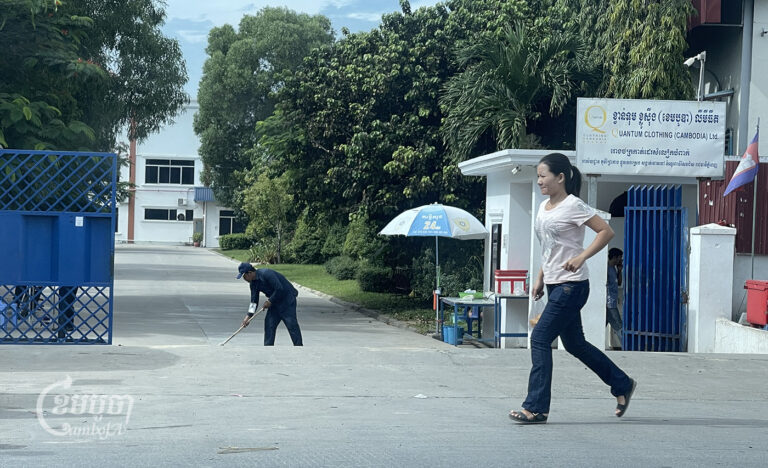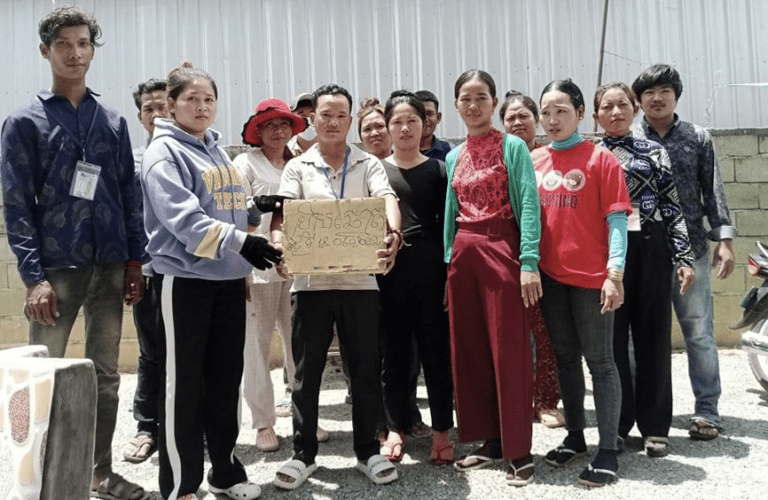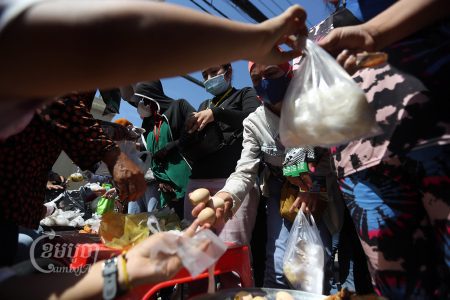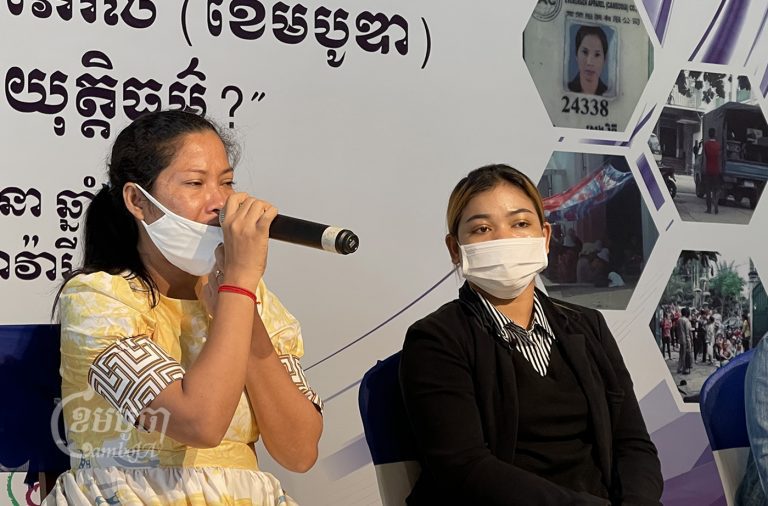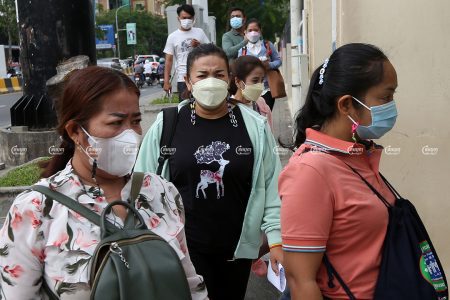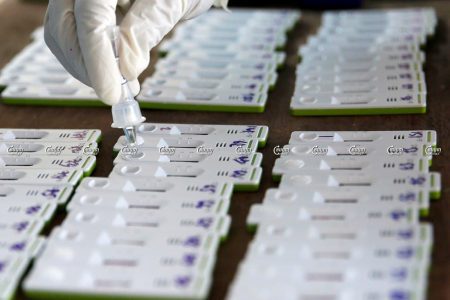Employers, government and union representatives will vote to set the 2022 minimum wage for garment workers on September 28, after failing to reach an agreement in three negotiation meetings.
The third and last of the tripartite talks was held Tuesday, with no resolution said Mann Seng Hak, vice president of the Free Trade Union of Workers of the Kingdom of Cambodia (FTUWKC).
“So on September 28, they will take all figures of every party for voting to choose any figure to set the minimum wages for the garment workers for 2022,” Seng Hak said. “The participants to vote will be 17 people from the employers side, 17 people from the government, and 17 people from unions.”
At the final meeting on Tuesday, he said employers representatives proposed $188, a rise from a proposal of 183.40 made last week. The government proposed $192, updated from 191.90.
And the unions proposed $204, decreasing from 206.60. The minimum wage is currently $192, but employers and, initially, the government had called for a wage decrease amid the pandemic. Unions initially called for a wage increase to $214.20.
“I think that the minimum wage for garment and footwear workers should be the salary that we requested [$204] because expenses for their livelihoods including goods and gasoline have also increased,” said Seng Hak. “The government should increase the salary for workers because all goods increased…. And the government should not keep the figure the same as last year.”
He noted that last year, the government approved a slight $2 raise though the pandemic badly hit the economy and garment sector. This year, he said, there have been more investments and more planned for next year.
Ken Loo, secretary general of the Garment Manufacturing Association of Cambodia, said Tuesday that employers had calculated wages based on seven criteria. On September 14, he said that the employers’ side of negotiations made its own calculations to conclude worker’s salaries should be reduced by 4.5%. Loo pointed to the economic effects of COVID-19, saying that employers’ production decreased 10% in 2020 compared to 2019 in exports.
Loo said employers are also spending more in order to prevent the spread of COVID-19 in factories, a requirement that includes expenses for masks, sanitizers and rapid tests for workers.
Ath Thorn, president of the Cambodian Labor Confederation — one of the country’s biggest unions attending the tripartite negotiations hosted by the Ministry of Labor — said workers are suffering the impacts of the pandemic far more than employers.
“If the government does not increase the salary for workers, it will make workers’ meet more and more difficulties,” Thorn said. “I think that the employer party should rethink this issue and the government should increase the salary for our workers as appropriate.”
Thorn said that expenses have been increasing, while there has also been 3% inflation in the past year. At the same time, he said, the government recently amended the Labor Law to reduce some worker benefits, “so if they do not increase the salary for workers it is not reasonable.”
Thuch Sreyneang, 39, a garment worker at Top Silver Factory in Prey Veng province, said she struggles to support her family of five on her current salary of about $200 a month.
“Nowadays, If I rely only on my salary I cannot support my family but my husband also helps the family,” she said.
“I think that if the government does not increase the salary, my family’s livelihood will fall,” she said, adding that she hopes the minimum wage will be increased to more than $200.
“My family needs to spend more than $200 per month for food,” she said. “If they do not increase the salary, I am very disappointed because I hope that the government will increase the salary every year.”
Luch Sokkea, 24, a garment worker at Horizon Outdoor Factory in Kampong Chhnang province, said she thinks workers will protest if they do not receive a raise.
“If the government does not increase the salary for workers or decrease the salary, most of our workers will hold protests to demand an increase to the salary,” she said.
“The current salary is not enough for expenses every day, so if the government does not increase the salary our lives will get worse,” Sokkea said.
“Please can the government help to increase the salary for workers,” said Sokkea.
Heng Sour, Labor Ministry spokesman, could not be reached for comment.
Van Sou Ieng, president of GMAC and Kaing Monika, deputy general secretary of GMAC, could not be reached for comment.



